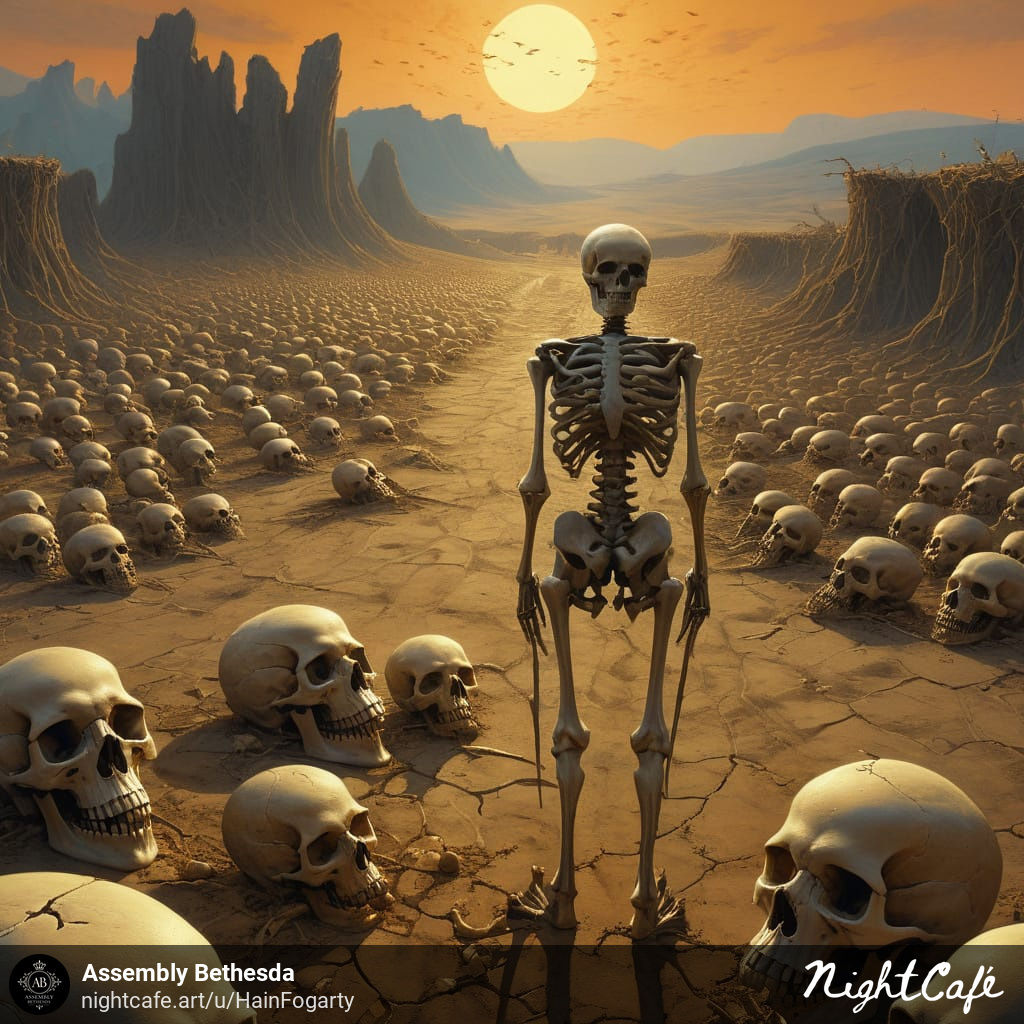Ezekiel stands in a valley choked with death and bones in Ezekiel 37:1-14. This is not your average graveyard. It’s a blinding vision of hopelessness, where life has been reduced to its most basic form. Bleached, scattered and broken bones stretch endlessly before him, remnants of a vibrant people now reduced to a skeletal wasteland. It’s like the air suffocates with divine judgment. In the stillness, God breaks the silence with a question, “Son of man, can these bones live?” This question pierces like a blade, for what hope can linger on such decay?
There’s nothing new about this scene, it’s unrelentingly bleak. These are not fresh corpses, but dry, brittle relics long abandoned by flesh and breath. They symbolize Israel, exiled and shattered, their covenant with God broken. In the imagery, faith falters, purpose crumbles, and the world feels like a tomb. Who hasn’t stood in their own valley, looking at broken dreams, relationships, or beliefs? We are forced to confront this void in Ezekiel’s vision, to feel the chill of a meaningless life.
Nevertheless, God commands Ezekiel to speak to the bones. “Speak,” He says, “and I will bring breath into them.” The prophet obeys, and the valley trembles. It’s like a grotesque symphony of bones. It’s like a half-resurrection, a cruel tease of restoration that underscores their desolation. As flesh creeps over the frames, the bodies remain lifeless, hollow shells without spirits. The bodies rise only when Ezekiel calls forth the breath, the ruach of God. It’s not a gentle revival; it’s a violent upheaval, a wrenching of life from death.
Though the vision promises a lot, it’s still dark. Although God’s power to restore is undeniable, exile leaves a lot of scars, spiritual, emotional, physical. For Israel, renewal had to do with repentance, their return to a God who seemed distant in their suffering. For us, the valley asks a brutal question: what do we do when hope feels like a mockery? The world around us mirrors Ezekiel’s vision—wars rage, societies fracture, and personal losses pile up. While faith wavers when God seems silent, the text insists that even in the worst ruin God’s breath can stir.
This isn’t a tidy redemption story. There are no cheap comforts in the valley of dry bones. It requires us to confront the wreckage we’ve inherited, our world’s wreckage, and speak to it, trusting a God who works through anything. To stand in the valley is to know death’s weight and still dare profess life. Can these bones live? Only through belief and faith.

